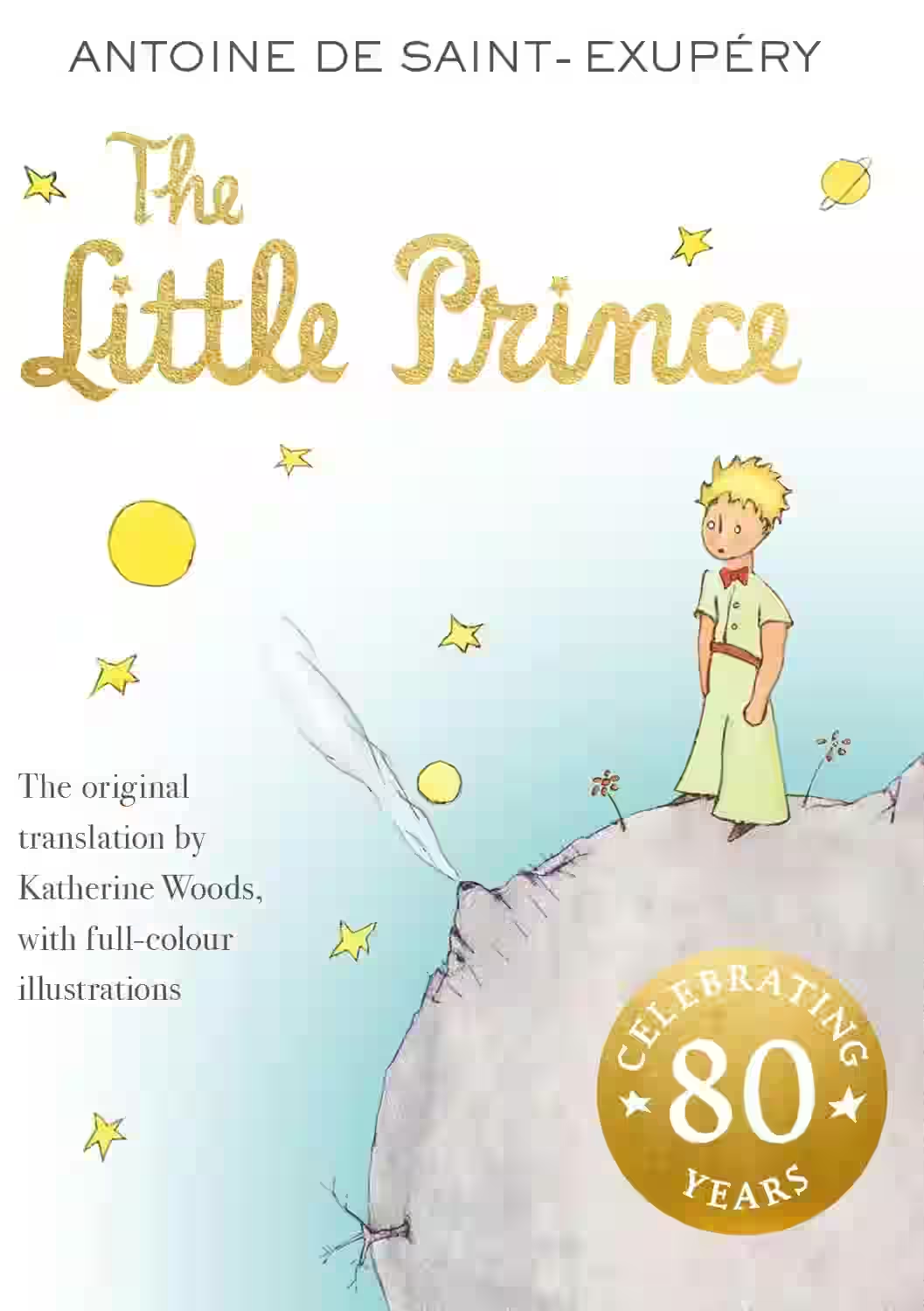Antoine de Saint-Exupéry
Antoine de Saint-Exupéry was a French writer, poet, and pioneering aviator best known for The Little Prince, one of the most translated and beloved books in the world. Blending philosophical insight with whimsical storytelling, he used his aviation experiences to explore themes of loneliness, friendship, love, and loss. His other notable works include Night Flight and Wind, Sand and Stars. A decorated pilot who disappeared during a reconnaissance mission in World War II, Saint-Exupéry’s life and work embody a blend of adventure, introspection, and poetic imagination. His legacy endures through his deeply human and timeless literary contributions.

This poetic novella follows a young prince who travels from planet to planet, encountering strange adults and pondering life’s deeper truths. Told by a narrator stranded in the desert, the story explores themes of love, loss, innocence, and imagination. With deceptively simple language and whimsical illustrations, The Little Prince delivers profound reflections on human nature and relationships—especially through the prince’s bond with a rose. Though written for children, it resonates strongly with adults, reminding readers to see with the heart rather than the eyes. Universally cherished, it’s a philosophical fable that invites reflection on what truly matters.